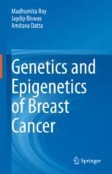Search
Search Results
-
Genomic characteristics of triple negative apocrine carcinoma: a comparison to triple negative breast cancer
Apocrine carcinoma is a rare breast cancer subtype. As such, the genomic characteristics of apocrine carcinoma with triple negative...

-
The cross-talk of cancer-associated fibroblasts assist in prognosis and immunotherapy in patients with breast carcinoma
The association between cancer-associated fibroblasts (CAFs) and tumor microenvironment (TME) is a key factor in promoting tumor progression....

-
Effect of histological breast cancer subtypes invasive lobular versus non-special type on survival in early intermediate-to-high-risk breast carcinoma: results from the SUCCESS trials
BackgroundInvasive lobular breast carcinomas (ILC) have different histological features compared to non-special type carcinomas (NST), but the effect...

-
Radiotherapy versus low-dose tamoxifen following breast-conserving surgery for low-risk and estrogen receptor-positive breast ductal carcinoma in situ: an international open-label randomized non-inferiority trial (TBCC-ARO DCIS Trial)
BackgroundRadiotherapy (RT) following breast-conserving surgery (BCS) is mainly used to decrease the rate of ipsilateral breast tumor recurrence...

-
Breast Cancer
Breast cancer is currently the most diagnosed cancer in the female population, with a prevalence of 1 in 8 women.
-
Pilot Experiment on Non-Invasive Non-Thermal Disintegration of Human Mucinous Breast Carcinoma Ex Vivo Using Boiling Histotripsy
We present the results of a pilot study demonstrating the feasibility of non-invasive non-thermal disintegration of human mucinous carcinoma of the...
-
Epigenetic activation of SOX11 is associated with recurrence and progression of ductal carcinoma in situ to invasive breast cancer
BackgroundRisk of recurrence and progression of ductal carcinoma in situ (DCIS) to invasive cancer remains uncertain, emphasizing the need for...

-
Transcriptomic alterations underlying metaplasia into specific metaplastic components in metaplastic breast carcinoma
BackgroundMetaplastic breast carcinoma (MpBC) typically consists of carcinoma of no special type (NST) with various metaplastic components. Although...

-
Unveiling innovative therapeutic strategies and future trajectories on stimuli-responsive drug delivery systems for targeted treatment of breast carcinoma
This comprehensive review delineates the latest advancements in stimuli-responsive drug delivery systems engineered for the targeted treatment of...

-
Cell Cycle Dysregulation in Breast Cancer
Cancer, a condition characterized by abnormal cell growth, is closely linked to the cell cycle. In reaction to mitogenic cues, all malignancies...
-
Introduction to Breast Cancer
Breast cancer is the leading cause of mortality among women worldwide. Being a heterogenous disease it comprises many different subtypes that differ...
-
Hardware deployment of deep learning model for classification of breast carcinoma from digital mammogram images
Cancer is an illness that instils fear in many individuals throughout the world due to its lethal nature. However, in most situations, cancer may be...

-
Gallium maltolate shows synergism with cisplatin and activates nucleolar stress and ferroptosis in human breast carcinoma cells
PurposeBreast cancer is the most common cancer in women. Triple-negative breast cancer (TNBC) is an aggressive disease with poor outcomes. TNBC lacks...

-
Vangl-dependent Wnt/planar cell polarity signaling mediates collective breast carcinoma motility and distant metastasis
BackgroundIn light of the growing appreciation for the role of collective cell motility in metastasis, a deeper understanding of the underlying...

-
Association of hormone receptors and human epidermal growth factor receptor-2/neu expressions with clinicopathologic factors of breast carcinoma: a cross-sectional study in a tertiary care hospital, Kabul, Afghanistan
BackgroundBreast cancer (BC) is one of the major causes of death worldwide. It is the most common cause of death before the age of 70 years. The...

-
Molecular Profiling and Personalized Medicine in Drug-Resistant Breast Cancer
The utilization of molecular profiling techniques and personalized medicine approaches in the management of breast cancer is driven by molecular...
-
Breast Cancer: Epidemiology, Types, Diagnosis, and Treatment
Breast cancer is a complex disease, and many aspects of this disease are under intensive research. Better treatment of breast cancer can only be...
-
Markers associated with genomic instability, immunogenicity and immune therapy responsiveness in Metaplastic carcinoma of the breast: Expression of γH2AX, pRPA2, P53, PD-L1 and tumor infiltrating lymphocytes in 76 cases
BackgroundMetaplastic breast cancer (MpBC) is an aggressive subtype of breast carcinoma that is often resistant to conventional chemotherapy....

-
Mixed invasive ductal lobular carcinoma is clinically and pathologically more similar to invasive lobular than ductal carcinoma
BackgroundMixed invasive ductal lobular carcinoma (mDLC) remains a poorly understood subtype of breast cancer composed of coexisting ductal and...

-
Poor response to neoadjuvant chemotherapy in metaplastic breast carcinoma
Metaplastic breast carcinoma (MpBC) is a rare special histologic subtype of breast carcinoma characterized by the presence of squamous and/or...

